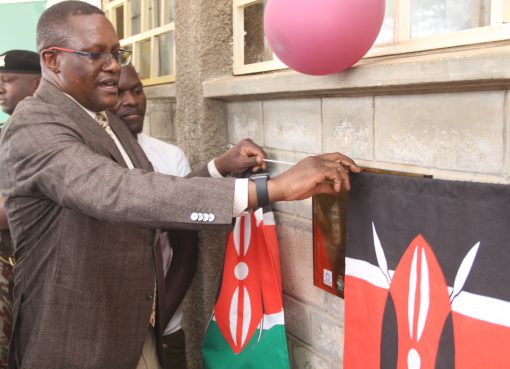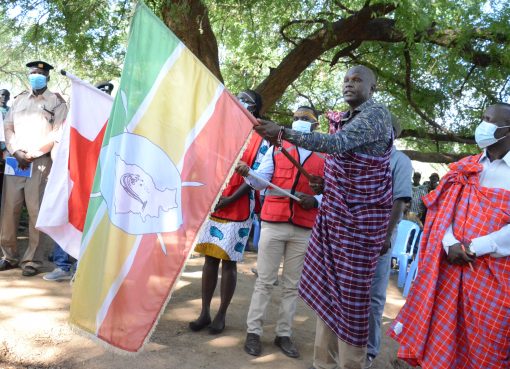Farmers are being asked to invest more in technology during farming to cover up for the lack of extension officers.
According to Dr. Jessica Mbaka, a Plant Pathologist and Director at Horticulture Research Institute at KALRO Thika, farmers should go an extra mile and embrace new technologies in order to benefit from the business of farming.
“Kenya has not lost because of the reduced extension services since farming has now come with change and farmers have to embrace upcoming technologies to fill in the gap,” she said.
Speaking during a one-week training of farmers and agricultural staff from Meru and Embu on avocado value chain technology, Dr. Mbaka noted that there has been a huge gap between the knowledge and the farmer because initially the extension system in the government used to be very effective and the model used saw research developed and the technologies would be trickled to the farmers through extension service.
This is now lacking because the ratio of extension workers to farmers is getting bigger because of the freeze on employment by the government, so the farmers have actually to look at extension like a service they may have to seek if they have to remain in profitable farming business and this, they can easily by embracing technology,” she explained.
She noted that the training will assist participants in identifying major diseases of avocados, describe symptoms of common diseases and describe management systems for avocado diseases.
“Farming is no longer a business as usual; we want farming to be profitable business and thus the knowledge like the one being given today is a key input,” she said.
Dr. Mbaka noted that through the training, the farmer should also be able to know the quality of seedling especially for the HASS variety of avocado that has seen many farmers get fake ones in the name of HASS and continue waiting thus getting low yields.
“Kenya Agricultural Livestock Research Organization (KALRO) seeds are qualified and we would like farmers to know that they can get to us for the quality seeds and not have to go far since we have the seeds in our centres across the country,” Dr. Mbaka affirmed.
Through the training, she added that the farmer would be able to learn the technology of telling whether the nursery selling the seeds is certified or not. “There is available information online where a farmer can click and see the list of nurseries that have been certified by KEPHIS but that again means the farmer needs a smart phone to go online and that is what I mean by being ready to invest in knowledge.” Dr. Mbaka added
Dr. Mbaka however clarified that there will still be need for the farmers to engage experts once in a while and invest their money on them especially when it comes to the issue of disease and pests on the crops.
The government, she explained, is providing the knowledge but it is only the farmer who wants to remain in business can set his mind on the changes in order not to experience losses in his farm.
Dipesh Devraj, Operation and Commercial Director of Keitt Exporters said the training of the farmers in the avocado value chain could not have come at a better time because the avocado season is just starting.
Keitt Exporters is Kenya’s largest grower and exporter of avocados from Kenya to the world and works with commercial farmers, from small, medium and big farmers.
“We are attached to this programme which consists of supporting on agronomy, advice and on the best practices of planting avocado, looking after the tree proper husbandry and producing more yields during harvesting and our team is here to take farmers through the protocol of harvesting,” he said.
He noted that with the government having opened up market for China, this should be exciting times for farmers engaging in Kilimo Biashara especially if one has land to plant avocados.
“There is lot of excitement because China is a big market and we anticipate the numbers or volumes of avocados to grow very high though we have our competition from countries like Peru, Chile also Colombia who have already sent products to China.
Devraj noted that the war in Russia and Ukraine is also not kind to the business and has really pushed business back not only in Kenya but across the whole sector when it comes to logistics.
“In the next 3 to 4 months we just have to manage ourselves, mitigating and sustaining through this tough times before we bounce back,” he assured saying Kenya has a lot of potential and that planting more avocados can see the country feed the rest of the World with HASS variety of Avocado that does very well.
Devraj specifically encouraged farmers who are in Tea and Coffee Zones to plant avocados instead of leaving some of their land empty noting within 2 to 3 years they would start reaping benefits from the fruit. “From one acre someone can easily make Ksh 1 million from the avocados.”
Frida Wanja Kimathi from Abothuguchi West division, Central Imenti constituency in Meru County said although she does not have big chunk of land, she has been able to plant Hass avocado tree in her small piece as advised by Agricultural officers.
“I decided to give a trial to planting the avocado tree and I cannot regret it since when I harvested for the first time, I was able to sell fruits from one tree worth Sh 5,000.
From this one avocado tree, Wanja explained that she has been motivated and currently has planted 72 seedlings in her half acre piece of land, while she also bought another 3 acres and planted 280 avocado seedlings that are at fruit bearing stage.
By Wangari Ndirangu




